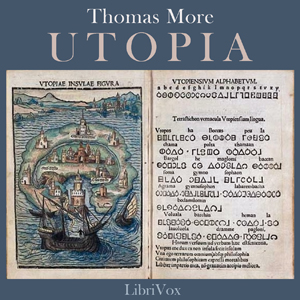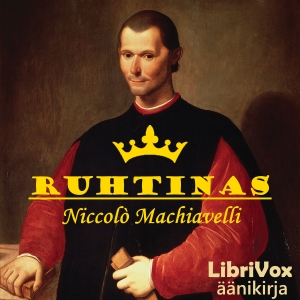This book is all about the fictional country called Utopia. It is a country with an ‘ideal’ form of communism, in which everything really does belong to everybody, everyone does the work they want to, and everyone is alright with that. This country uses gold for chamber pots and prison chains, pearls and diamonds for children’s playthings, and requires that a man and a woman see each other exactly as they are, naked, before getting married. This book gave the word 'utopia' the meaning of a perfect society, while the Greek word actually means ‘no place’. Enjoy listening to this story about a country that really is too good to be true. (Summary by Jenilee.)
This is the 17th century translation by Gilbert Burnet, edited in the 19th century by Henry Morley.
12 episodes

Pubblicato nel 1542, questo dialogo espone le teorie sulla lingua italiana che, già dal secolo precedente, presero forma, cercando di trasformare il volgare italiano, ancora instabile grammaticalmente, in una vera e propria lingua regolata da norme. I protagonisti del dialogo sono: Bembo (Pietro Bembo), sostenitore del volgare colto e che prende come modelli il Decameron del Boccaccio e il Canzoniere del Petrarca; Lazaro (Lazzaro Bonamico), cultore del latino e spregiatore dell'uso colto del volgare; un Cortegiano, portavoce della teoria di Baldassarre Castiglione, che propone di aprire il volgare di base toscana alle influenze di altre regioni e lingue; uno Scolare che riporta un dialogo tra Lascari (Giano Lascaris), professore di greco, sostenitore dell'indissolubilità tra concetto e parola, e Peretto (Pietro Pomponazzi - detto Peretto per la bassa statura), filosofo aristotelico, che auspica l'utilizzo del dialetto nell'esercizio dell'attività speculativa, per non perdere tempo inutile nello studio delle parole a scapito delle "cose".(Summary by Riccardo Fasol)
2 episodes
Elizabethan Demonology: An Essay in Illustration of the Belief in the Existence of Devils, and the Powers Possessed By Them, as It Was Generally Held during the Period of the Reformation, and the Times Immediately Succeeding; with Special Reference to Shakespeare and His Works
This Essay is an expansion, in accordance with a preconceived scheme, of two papers, one on "The Witches in Macbeth," and the other on "The Demonology of Shakespeare," which were read before the New Shakespeare Society in the years 1877 and 1878. The Shakespeare references in the text are made to the Globe Edition.
- Summary by Thomas Alfred Spalding
11 episodes
Ruhtinas on erään Firenzeläisen valtiosihteerin, Niccolo Machiavellin, ohjekirja ruhtinaille, jotka haluavat säilyttää tai lisätä ruhtinaskuntainsa valtaa. Se on kirjoitettu renessansin ajan Italiassa, jolloin koko maa oli jakautunut pieniin, toisiansa nokitteleviin kaupunkivaltioihin ja se on omistettu sille ruhtinaalle, jota Machiavelli toivoo koko kansan yhdistäjäksi. Ruhtinas on yksi maailman luetuimmista ja arvostetuimmista kirjallisista teoksista. Vai pitäisikö sanoa epäarvostetuimmista, sillä se oli pitkään Indexissä, eli Kirkon kiellettyjen kirjojen listalla ja herättänyt lukijoissa läpi historian paljon kauhistelua ja pelon sekasita kunnioitusta. Sitä pidetään reaalipolitiikan peruskirjana, jossa Machiavelli kertoo suoraan miten asiat ovat, ei miten niiden pitäisi olla. Monet ovat löytäneet Machiavellin ohjeet hyödyllisiksi myös nykyajan arki- ja liike-elämässä. - Summary by Harri Tapani Ylilammi
27 episodes



